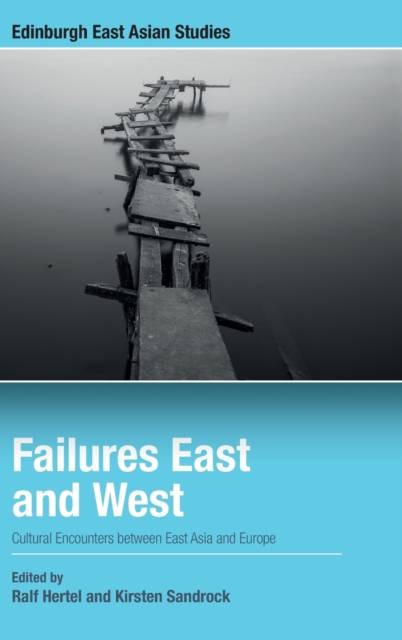
- Retrait gratuit dans votre magasin Club
- 7.000.000 titres dans notre catalogue
- Payer en toute sécurité
- Toujours un magasin près de chez vous
- Retrait gratuit dans votre magasin Club
- 7.000.0000 titres dans notre catalogue
- Payer en toute sécurité
- Toujours un magasin près de chez vous
Failures East and West
Cultural Encounters Between East Asia and Europe
Description
Often, the story of encounters between Asia and the West has been told as one of success, of cross-fertilization, reciprocal stimulation and an exchange of commodities and knowledge. Yet, the history of East-West encounters is riddled with prominent examples of misunderstandings, ignorance, unrealistic expectations or unbridgeable cultural differences. Bringing together scholars working across Chinese Studies, Japanese Studies, English Studies and French Studies, this book presents new perspectives on such instances by theorizing epistemologies of failure. Providing examples from different periods and disciplines, it reveals how culturally informed expectations and biases, performative and linguistic practices and imaginative horizons specific to the cultures involved shape notions of failure and success. Case studies range from first encounters in the early modern period to contemporary novels and focus on actual or imaginary encounters between East Asia and Western European cultures.
Spécifications
Parties prenantes
- Editeur:
Contenu
- Nombre de pages :
- 208
- Langue:
- Anglais
- Collection :
Caractéristiques
- EAN:
- 9781399500517
- Date de parution :
- 17-04-23
- Format:
- Livre relié
- Format numérique:
- Genaaid
- Dimensions :
- 156 mm x 234 mm
- Poids :
- 467 g

Les avis
Nous publions uniquement les avis qui respectent les conditions requises. Consultez nos conditions pour les avis.





